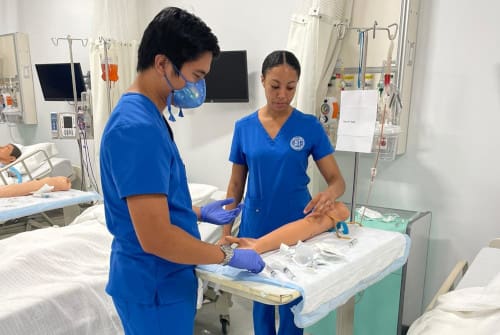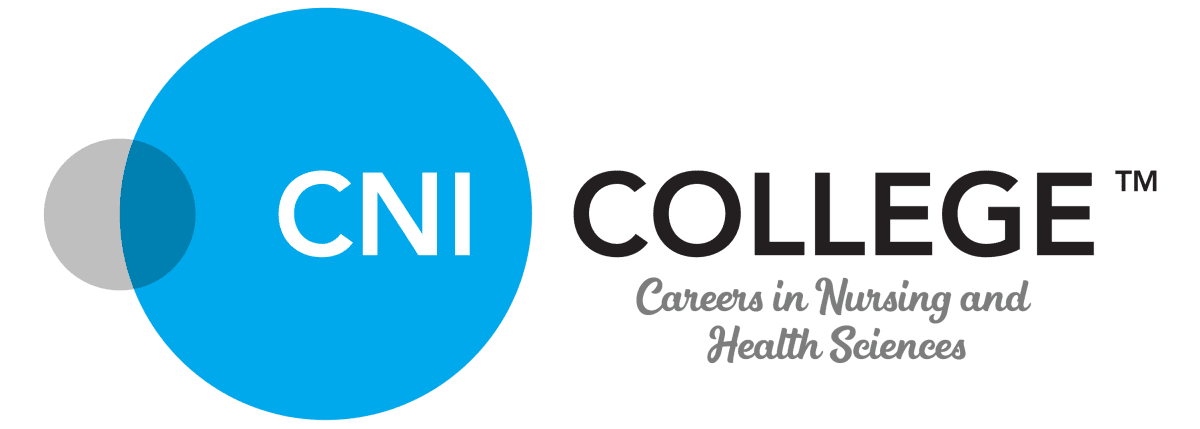In today’s interconnected world, healthcare knows no borders. From remote villages in sub-Saharan Africa to post-disaster zones in Southeast Asia, nurses are on the front lines of care, delivering critical health services in some of the most challenging environments. Global health nursing is a dynamic and rewarding field that allows registered nurses (RNs) and nurse practitioners (NPs) to expand their impact far beyond their local communities. But it’s also a field that requires resilience, adaptability, and a deep commitment to cultural competence and ethical care.
In this blog post, we’ll explore what it means to work in global health nursing, the types of opportunities available, the benefits of participating in international care efforts, and the obstacles nurses may face in these roles.
What Is Global Health Nursing?
Global health nursing involves providing healthcare services in international and cross-cultural settings. It may include short-term humanitarian missions, long-term deployments in underserved regions, or collaborative efforts to improve health infrastructure in developing nations. Global health nurses often work alongside international aid organizations, local governments, and community-based programs to address a wide range of issues, including:
- Infectious disease outbreaks (e.g., Ebola, COVID-19)
- Maternal and child health
- Access to clean water and sanitation
- Chronic disease management
- Mental health care in crisis zones
- Disaster relief and recovery
What distinguishes global health nursing from other specialties is its emphasis on population-level care, cross-border collaboration, and health equity. These nurses are not just providing individual care; they are helping build sustainable systems that empower communities to maintain their own health outcomes over time.

Opportunities for Nurses in Global Health
1. International Humanitarian Work
Organizations like the International Committee of the Red Cross (ICRC), Médecins Sans Frontières (Doctors Without Borders), and Project HOPE rely on nurses to provide immediate care in disaster zones, war-torn areas, and refugee camps. Assignments may include managing wound care in conflict zones, assisting in childbirth in areas without hospitals, or helping set up mobile clinics.
2. Volunteer Medical Missions
Short-term missions are another popular way for nurses to get involved. These trips, often organized by nonprofits, faith-based groups, or academic institutions, last anywhere from a few days to several weeks and typically involve providing primary care services, immunizations, or health education in low-resource settings.
3. Global Public Health Initiatives
Nurses with a background or additional education in public health may work on long-term projects aimed at disease prevention, vaccination campaigns, nutrition education, and water sanitation initiatives. These roles are more strategic and may involve data analysis, program development, and policy advocacy.

4. Nursing Education and Training
In many parts of the world, there is a shortage of trained healthcare workers. Nurses can play a vital role by training local staff, offering continuing education, or developing culturally relevant teaching materials. This work helps build sustainable health systems and strengthens the capacity of local providers.
5. Telehealth and Remote Support
Technology has opened new doors for global health nursing. Nurses can now provide remote consultations, training, and even triage services via telehealth platforms, making it possible to support underserved communities without being physically present.
Skills and Qualifications
While the core competencies of nursing—clinical knowledge, patient care, ethical judgment—are essential, global health nursing often demands additional skills:
- Cultural Competence: Understanding local customs, beliefs, and languages is critical to delivering respectful, effective care.
- Adaptability: Conditions in the field may change rapidly, and resources are often limited.
- Problem-Solving Skills: Nurses must be able to innovate and improvise when standard equipment or supplies are unavailable.
- Emotional Resilience: Working in areas with high rates of suffering, illness, and mortality can take a psychological toll.
- Teamwork and Communication: Global health efforts often involve coordination among multinational, multilingual teams.
In some cases, a Bachelor of Science in Nursing (BSN) or even a Master of Science in Nursing (MSN) with a focus on public health or global health may be preferred or required. Fluency in a second language is also a strong asset.
Challenges of Global Health Nursing
Despite its rewards, global health nursing is not without its hurdles. Nurses entering this field should be prepared to navigate:
1. Resource Limitations
Many global health environments operate without reliable electricity, clean water, or even basic medical supplies. Nurses must learn to work creatively and efficiently under these constraints.
2. Safety and Security Risks
Working in politically unstable or disaster-stricken areas can involve risks such as civil unrest, exposure to disease, or natural hazards. Nurses must be trained in safety protocols and have contingency plans in place.
3. Emotional Burnout
Exposure to severe trauma, poverty, and loss can lead to compassion fatigue or emotional burnout. Support systems, debriefings, and mental health care are essential for long-term sustainability in this line of work.
4. Cultural Barriers
Misunderstandings due to language differences, religious practices, or societal norms can hinder care delivery. Cultural humility—acknowledging that we don’t know everything and must listen and learn from the community—is crucial.

5. Ethical Dilemmas
Nurses may face difficult choices about prioritizing care when resources are scarce or navigating conflicts between local practices and evidence-based medicine.
Ethical Guidelines and Best Practices
When working in global health, adhering to internationally recognized ethical standards is essential to ensure safe, equitable, and culturally respectful care. Nurses must always be mindful of their professional and ethical responsibilities, particularly in settings that may have different cultural or legal frameworks.
Key ethical guidelines include:
WHO Code of Practice on the International Recruitment of Health Personnel
This document sets standards for the ethical recruitment of health workers globally, focusing on fairness and transparency. Nurses should familiarize themselves with this code to ensure they are engaged in ethical recruitment and placement practices.
American Nurses Association (ANA) Code of Ethics
While this code is U.S.-centric, its principles are applicable worldwide, particularly in terms of patient advocacy, confidentiality, and the promotion of justice in healthcare. Nurses should always prioritize patient rights, cultural sensitivity, and ethical decision-making, even in challenging global contexts.

Informed Consent and Cultural Sensitivity
Nurses must ensure that patients are fully informed about their treatment options, which can be especially complex in areas with diverse cultural practices. This may require offering care in a way that respects local traditions while still adhering to evidence-based practices.
Confidentiality
Maintaining confidentiality in the face of limited infrastructure and during emergencies is vital to preserving trust between healthcare workers and communities.
These ethical principles provide a strong framework to navigate the complexities of working in global health while ensuring that the care provided is always of the highest ethical standard.
Making an Impact
Despite the challenges, the impact of global health nursing is profound. Nurses in these roles not only save lives, they help lay the foundation for healthier communities. Their presence can improve maternal and infant health, slow the spread of communicable diseases, and enhance long-term health literacy. Even brief volunteer missions can lead to lasting change when they focus on empowerment and sustainability.
Moreover, working in global health can profoundly shape a nurse’s perspective, deepening their sense of purpose and broadening their understanding of healthcare as a global human right. Many nurses return home with renewed commitment and insight that enhances their practice locally.
Getting Started in Global Health Nursing
For nurses interested in entering this field, there are several pathways:
- Join a global health or humanitarian organization as a volunteer or full-time staff member.
- Pursue further education in public health, tropical medicine, or international development.
- Participate in short-term mission trips to gain experience and see if the field is a good fit.
- Network with experienced global health professionals or join nursing associations that focus on global practice.
- Stay informed about current global health issues and humanitarian needs through reputable sources like the WHO or CDC Global Health.
A Worldwide Mission of Care
Global health nursing is a unique and inspiring career path for those who want to make a difference on a worldwide scale. It blends clinical expertise with humanitarian purpose and offers both professional and personal growth. Whether through long-term deployment or a single mission, nurses play a vital role in improving global health outcomes, one patient, one community, one country at a time.
Technological Tools and Innovations in Global Health Nursing
Innovations in technology are rapidly transforming the landscape of global health, making it easier for nurses to provide quality care in even the most remote and underserved settings. Below are just a few examples of technological tools that are revolutionizing global health nursing:
- Mobile Health Apps (mHealth): Mobile apps have become a game-changer in global health, enabling nurses to track patient data, offer health education, and monitor symptoms in real-time. These apps often include features such as symptom checkers, medication reminders, and health management tools, all accessible via smartphones, even in areas with limited infrastructure. Apps like WHO’s Health Emergency Dashboard help nurses stay updated on outbreaks, while others enable the collection of health data for future research and intervention planning.
- AI Triage and Diagnostic Tools: Artificial intelligence (AI) is improving the ability of healthcare professionals to triage patients remotely, especially in disaster zones. Tools like Babylon Health and Ada Health use AI to assess patient symptoms and recommend actions, such as whether the patient should seek immediate care or manage symptoms at home. This can help alleviate pressure on healthcare systems and ensure timely interventions, particularly when nurses are working with minimal resources.

- Telehealth Platforms: Nurses are increasingly utilizing telehealth technology to provide consultations and even remote diagnostics. For instance, tele-ICU and tele-nursing allow professionals in urban centers to assist those working in rural or conflict zones by guiding them through procedures, helping manage patient care, or even offering emotional support in high-stress situations.
- Digital Health Records: Electronic health records (EHR) are becoming standard even in low-resource settings, helping streamline patient care. They allow nurses to document health assessments, track patient progress, and share vital information across borders with ease. In remote areas, digital records also support continuity of care and reduce the risk of medical errors.
These technologies enable nurses to overcome many barriers, such as distance, limited resources, and lack of infrastructure, while delivering high-quality, timely care to underserved populations around the world.
Global Health Nursing Organizations & Resources
- International Council of Nurses (ICN)
A federation of over 130 national nurses associations, ICN works to ensure quality nursing care for all, sound health policies globally, and the advancement of nursing knowledge.Wikipedia - World Health Organization (WHO)
As the United Nations’ specialized agency for health, WHO provides leadership on global health matters, shapes the health research agenda, and sets norms and standards.Wikipedia - Doctors Without Borders (Médecins Sans Frontières)
An international medical humanitarian organization that delivers emergency aid to people affected by conflict, epidemics, disasters, or exclusion from healthcare. - Seed Global Health
Partners with countries to strengthen health systems by training and supporting health professionals, including nurses, to meet local health needs. - Health Volunteers Overseas (HVO)
Focuses on improving global health through education by sending volunteers to train and mentor local health professionals in resource-scarce countries.Wikipedia - IntraHealth International
Works to improve the performance of health workers and strengthen the systems in which they work, ensuring everyone has access to health services. - Pan American Health Organization (PAHO)
An international public health agency working to improve health and living standards in the Americas. - Project HOPE
Provides health education and humanitarian assistance in over 25 countries, focusing on areas like infectious diseases, disaster relief, and health policy. - Sigma Theta Tau International Honor Society of Nursing
Advances world health and celebrates nursing excellence in scholarship, leadership, and service. - American Nurses Association (ANA)
Represents the interests of the nation’s 4 million registered nurses, advocating for the profession and the public.

